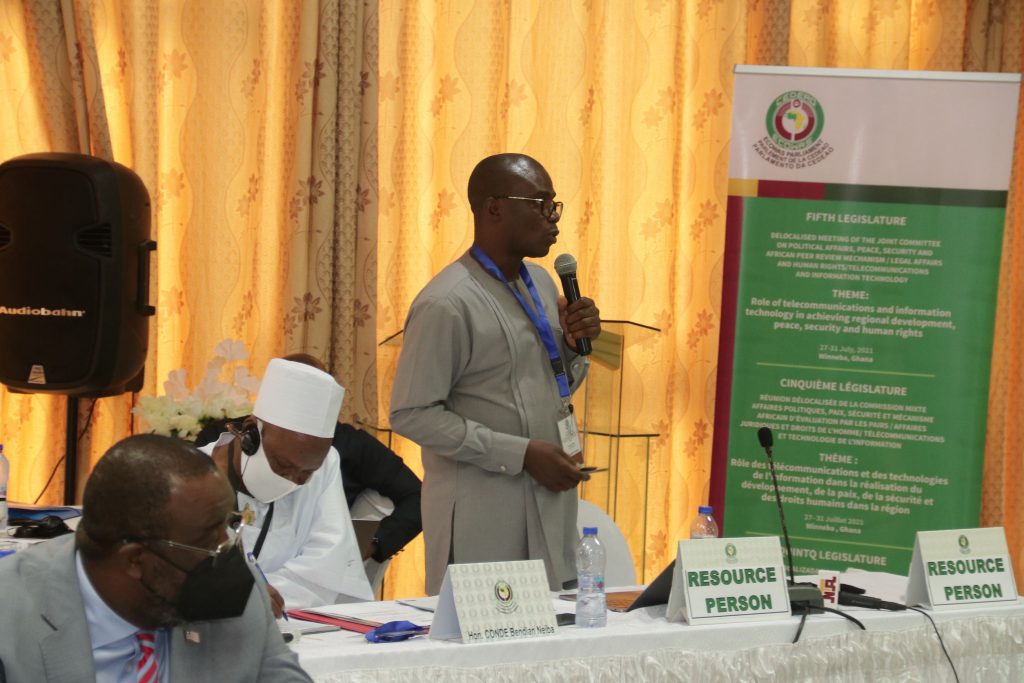Experts Xray Possibilities and Challenges of Regional Network Roaming
Experts have extensively analysed issues around network roaming in the subregion at the ongoing joint committee delocalized meeting of the ECOWAS Parliament holding in Winneba, Ghana from 27-31 July, 2021.
While making his presentation to Members of Parliament and other participants, Frederick Opare-Ansah, Telecom Consultant, and Acting Chairman of Council of the Ghana Communications Technology University, underlined that roaming services require the assignment of network resources by the foreign network to the roaming device for the delivery of its functions. He also stressed that Network operators usually have bilateral Roaming Agreements to enable their subscribers mutually roam across their respective networks. To make progress with issues of mobile roaming in the sub region, he recommended that ECOWAS Member States, must develop policies such as Network Resources Sharing, Mobile Number Portability, and stronger regional level regulatory regime including subscriber tariffs and wholesale prices among TELCOM operators.
Furthermore, Mawulu Amoa, Programme Officer, Telecommunications and Networks, ECOWAS Commission, whose presentation focused on the implementation of the ECOWAS Regulation on Roaming, indicated that the challenge is not only the absence of regulations but that of implementation. His paper also relayed the responsibilities of stakeholders under the regulation which admonishes Member States to ensure the compliance of the regulation within their territories and promote Cross-border ICT infrastructure interconnectivity. To this end, Mobile operators in each country have to implement the new tariff regime in line with the regulation and as mandated by the National Regulatory Authority. On the Action Plan by the ECOWAS Commission, the presenter indicated that the Proposal for common and harmonized ceiling tariffs for the ECOWAS zone by the Technical Committee and the National Regulatory Agencies has been consummated as at May 31, 2021.
In the light of the above, both experts recognized that some challenges of this phenomenon exist within the purview of weak legislation and implementation framework thus charged Parliamentarians not to limit their efforts to the provision of effective legislation but also hold stakeholders accountable for proper implementation in their respective countries for the benefit of the citizens. The lawmakers were also advised to create and enforce legal frameworks for protecting privacy, digital rights and literacy while using technology to improve population data management that is essential for planning elections, promoting speedy dispensation of justice, peace and security of lives and property.



